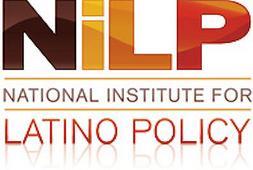
NiLP Commentary
Puerto Rico, Beyond the Disaster
By Angelo Falcón
The NiLP Report
Isla linda y bonita
Con sus aguas benditas
Yo le canto a la Isla de mi encanto
Isla linda y preciosa
Sobre todas las cosas
Yo mantengo en mi mente tu memoria
Puerto Rico
Isla de gran riqueza
De cariño y belleza
De palmeras y playas sin iguales
Isla tierna y pura
Y de gran hermosura
Verdes valles y pueblos hechiceros
Puerto Rico
Isla linda y preciosa, fabulosa, maravillosa
---excerpt from Eddie Palmieri's
"Puerto Rico" (Mango Records 1973)
 As I listened to Palmieri's "Puerto Rico" after seeing reports
of the destruction that Hurricane Maria wrought on the Island and thinking
of my family there, my heart sank. Persons after persons who were on the
ground in Puerto Rico at the time all said the same heartrending thing:
the Puerto Rico of yesterday is no more. This gives new meaning to Palmieri's lyric,
"Sobre todas las cosas / Yo mantengo en mi mente tu memoria / Puerto
Rico" ("Above all else / I keep in my mind your memory / Puerto Rico").
This speaks to the need for the Island and its diaspora to at some have
go beyond survival to its reconstruction and a hopeful future. The focus
now has to be on making all life support systems functional and assuring
the safety and health of its residents. Basic stuff.
As I listened to Palmieri's "Puerto Rico" after seeing reports
of the destruction that Hurricane Maria wrought on the Island and thinking
of my family there, my heart sank. Persons after persons who were on the
ground in Puerto Rico at the time all said the same heartrending thing:
the Puerto Rico of yesterday is no more. This gives new meaning to Palmieri's lyric,
"Sobre todas las cosas / Yo mantengo en mi mente tu memoria / Puerto
Rico" ("Above all else / I keep in my mind your memory / Puerto Rico").
This speaks to the need for the Island and its diaspora to at some have
go beyond survival to its reconstruction and a hopeful future. The focus
now has to be on making all life support systems functional and assuring
the safety and health of its residents. Basic stuff.
But again, from the rubble we need to also eventually look to the future. Before the two hurricanes, the people of Puerto Rico were already bracing for the impact of the directly human-made social disaster from its massive debt crisis and the expected draconian austerity measures it was to bring. Already thousands of Puerto Ricans had fled that anticipated social disaster, to the point that there are now many more Puerto Ricans living stateside than on the Island. With the current hurricane disaster, one can assume that this exodus from Puerto Rico will continue, adding to its depopulation to a unprecedented extent.
While it will take some time for Puerto Rico to recover, if it does, it is clear that it needs to do so, as US cicitzens, with major emergency assistance from the United States government. Besides emergency disaster funding (Congresswoman Nydia Velazquez [D-NY] estimates that a full recovery should run around $10 billion), there are the largely ignored recommendations from a Congressional economic development task force established as part of the PROMESA legislation to address the Island's debt crisis.
The current disaster has gotten President Trump's attention to the point that he plans to travel there, as well as will a Congressional delegation, and New York Governor Andrew Cuomo has done so already with supplies and first responders, to see firsthand the damage and how they can help. Up to this point, it was difficult to get Washington's serious attention to the fiscal crisis on the Island, but the publicity on the hurricanes gave the ongoing lobbying of players like Congresswoman Velazquez some momentum. Velazquez, who recently held a Congressional hearing to explore economic development recommendations on Puerto Rico, now has a clearer mandate for the Congress to adopt her and the task force's recommendations that include:
- A one-year waiver for the island from the cabotage restrictions under the Jones Act.
- The need for the government of Puerto Rico to develop a comprehensive economic development strategy that exploits the island's many comparative advantages.
- The need for Congress to enact an equitable and sustainable legislative solution to the financing of Puerto Rico's Medicaid program early in 2017.
- The making of changes to how Medicare is administered on the island, possibly changing the opt-in requirement for Puerto Ricans who want Medicare Part B.
- The expansion by Congress of the federal child tax credit in Puerto Rico so families there with one or two children can claim it just as families in the states do.
- The reform by the government of Puerto Rico of the Puerto Rico Electric Power Authority, which the task force said "does not inspire confidence" with its high-priced and unreliable electrical production and grid.
- The consideration by Congress of whether to authorize Puerto Rico to have greater flexibility in its use of Unemployment Compensation benefits for the purpose of increasing employment.
- The assessment and reform by the US Small Business Administration of its rate structures, limits, and contribution formulas for making small business loans in Puerto Rico.
- The creation by Congress of a program for contracting preference program for Puerto Rico small businesses to participate in federal contracts.
- The need for a Congressional hearing to determine if Social Security Supplemental Security benefits should be extended to disable people in Puerto Rico.
- The appointment of someone with expertise in Puerto Rico tourism to the United States Travel and Tourism Advisory Board.
- The basing of the U.S. Economic Development Administration of its Puerto Rico representative in Puerto Rico rather than Philadelphia.
While these policy and administrative changes would help, many of them would only do so marginally. They are clearly not enough and certainly do not constitute any real economic development plan. The urgent need is for a much more ambitious initiative closer to the Marshall Plan for Europe following the Second World War.
Hurricane Maria brought an unprecedented attention to Puerto Rico that hopefully finally reaches the average American and even Republican Members of Congress to let them know that Puerto Ricans are all US citizens and that they need to be finally treated as such. With the humanitarian crisis that was widely predicted to come from the debt crisis problem now being exponentially deepened by the hurricanes, the pressure will hopefully mount on the Congress to finally take decisive action. It will also hopefully have a similar effect on the Island's debt collectors, including the vulture funds, to be more willing to at least take their losses and move on. But none of this is assured.
While no one at this moment of crisis is focused much on the future, this disaster forces us to have to do so eventually nonetheless. How, for example, can Puerto Rico prevent its assets from being sold as though it was the site of a large scale garage sale? Will the disaster and recovery efforts by the US government provide greater or less support for the Island's statehood movement? Will Puerto Rican migration stateside continue on a massive scale, this time outside of Florida, accompanied by a further brain drain? Will Puerto Rico's depopulation result in a much older and more dependent population? And now what does the Junta do?
But for the present, we all need to focus on the here and now. So donate, voluntter and keep borinquen in your prayers and in your hearts.
Angelo Falcón is President of the National Institute for Latino Policy (NiLP). He can be reached at afalcon@latinopolicy.org.
